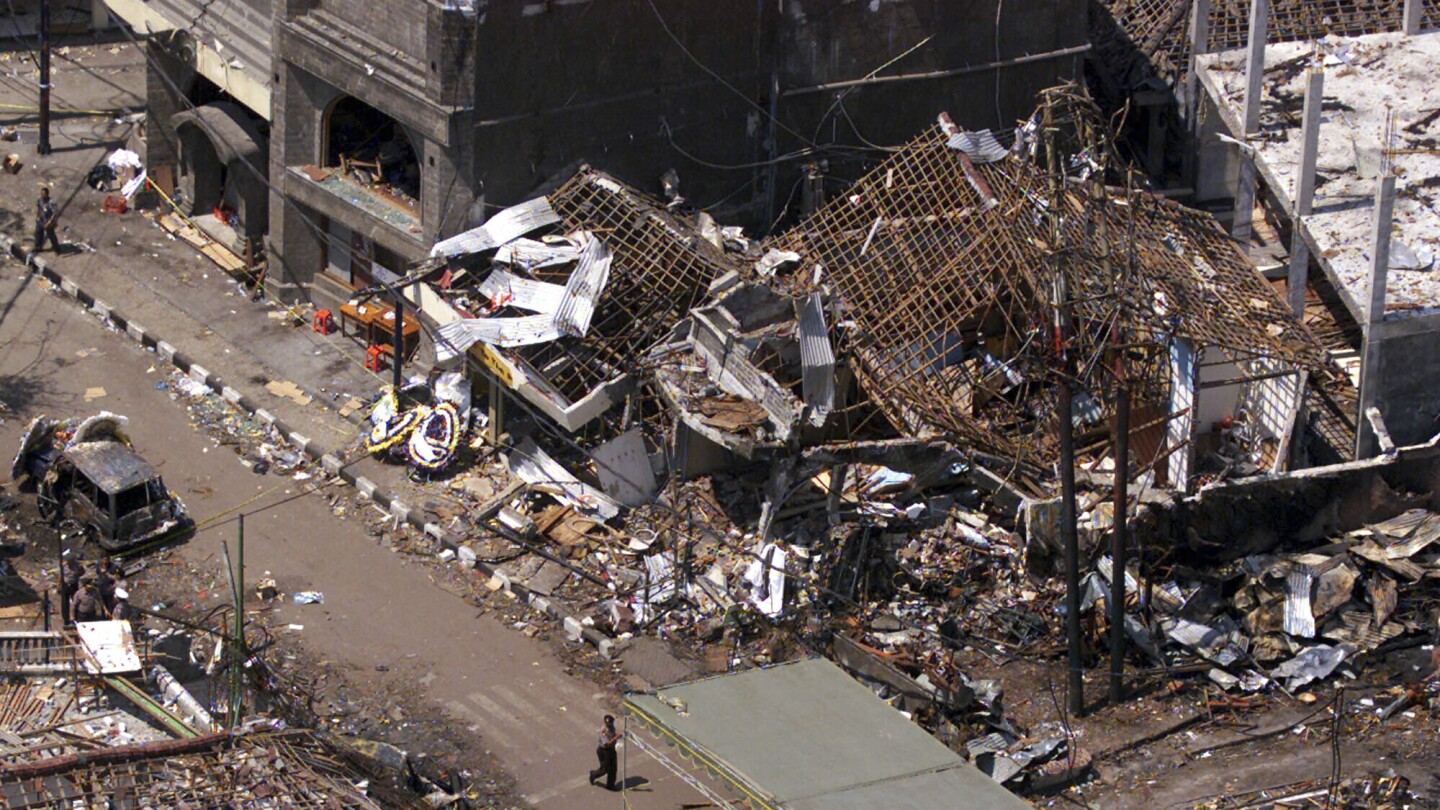FORT MEADE, Md. (AP) — Relatives of some of the 202 people killed in a pair of bombings on the resort island of Bali testified Wednesday of lives wrecked and families shattered in the attacks more than 20 years ago, speaking at a U.S. sentencing hearing at Guantanamo Bay for two Malaysian men in the case.
For the American commission on the U.S. military base in Cuba, the winding down of this case is comparatively rare in the prolonged prosecutions of deadly attacks by extremist groups in the opening years of this century. Prosecutors are still pursuing plea agreements with defendants in the Sept. 11, 2001, attacks and other cases at Guantanamo.
“The reach of this atrocity knew no bounds, and has affected very many people,” Matthew Arnold of Birmingham, England, said of the bombings on Oct. 12, 2002, that killed his brother, who was in Bali for a rugby tournament.
Arnold described his brother’s distraught fiancee ending the couple’s pregnancy after the bombings, of his father dying still in grief over his eldest son’s death, and of Arnold’s own marriage breaking up as he devoted his life to his brother’s legacy.
A Florida woman, Bonnie Kathleen Hall, spoke of the telephone call from the State Department that informed the family of the killing of 28-year-old Megan Heffernan, a teacher who had been vacationing with friends on Bali.
“That call dropped our hearts into an abyss, where they remain to this day,” Hall told the commission, with the two defendants in the hearing room.
More than two decades later, Hall said, she came to Guantanamo Bay because “it’s time for Megan to be recognized, and Megan’s demise to be recognized. And if possible, that justice be done.”
Jemaah Islamiyah, an armed extremist group linked to al-Qaida, carried out the attack on a Saturday night. Exploding nearly simultaneously, a car bomb and a suicide bomber targeted two clubs crowded with Indonesians and foreign tourists, including members of wedding parties and scuba divers.
Members of other families testified of being told of a loved one running from the bombing with their body in flames, of a young relative dying from breathing in super-heated air, of identifying a brother’s body in a morgue, and of the devastation and lingering stink of rotting bodies at the center of one of the bombings days later.
Chris Snodgrass of Glendale, Arizona, told of struggling with a “toxic” hatred of Muslims since the bombings killed his 33-year-old daughter, Deborah Snodgrass.
“I’m a religious person and the hateful person I have become is certainly not what I wanted,” he said.
He asked the court to “deal with these murderers in such a manner that they can’t do to others as they’ve done to us.”
The two defendants, longtime Guantanamo Bay detainees Mohammed Farik Bin Amin and Mohammed Nazir Bin Lep, pleaded guilty this month to conspiring in connection with the bombings. Wednesday’s session was a prelude to their sentencing. It was unclear when that would take place.
Prosecutors haven’t disclosed what role they played, and details surrounding their pleas are still emerging.
Reporters watched the proceedings from Guantanamo and by remote link from Fort Meade military base in Maryland. Intermittent glimpses from the courtroom cameras showed the two defendants listening attentively.
It’s unclear whether the two would testify in the U.S. trial of a third defendant in the case, Encep Nurjam of Indonesia, known as Hambali.
Guantanamo held about 600 prisoners at its peak in 2003. It now holds about 30 aging detainees, some of them still awaiting trial and some cleared and waiting for transfer out if a stable country can be found to take them.
The prosecutions have been plagued by logistical difficulties, frequent turnover of judges and others, and by legal questions over alleged torture of detainees in the first years of their detention.

